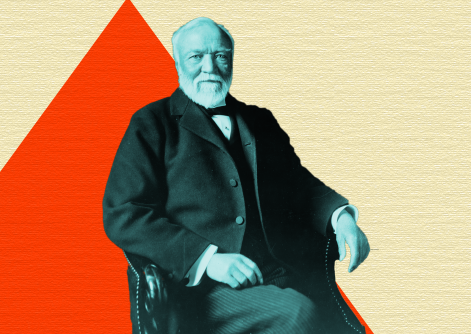Which is it, gals? Should donors burn bonfires of cash so they won’t be able to dictate to the rest of us any more, or should every available charitable dollar be poured into “working to generate and sustain public support” for Obamacare?
Let’s take Kleiman’s screed first, calmly headlined: “Billions for Charity, But Not One Cent for Taxes!” It starts by piling on to the Koch brothers, “oil billionaires who’ve donated hundreds of millions to nonprofits promoting right-wing causes.” Then Kleiman explains that “even when the receiving causes are unexceptional,” like fighting AIDS and malaria, it’s still, you know, “benevolent dictatorship” for Bill Gates and other public enemies to choose where they’ll send their money.
I’m unclear how we’re to stop persons from writing nasty big checks to fight malaria unless we're willing to use methods that are rather dictatorial, but perhaps Kleiman imagines that her two policy proposals will help: an 87% income tax coupled with a 77% estate tax.
(Speaking of taxes, it’s intriguing that Kleiman’s immediately prior Huffington post was also angry – that some charities might have their taxes raised.)
Kleiman explains that we have to wallop the filthy rich to save the country from aristocracy: “If you’re founding a republic, it’s really not a good idea to let money keep piling up generation after generation in the same few pairs of hands.”
Let’s leave aside the laughable idea that America’s constantly churning economy -- where you’re more likely to plunge from the richest 20 percent to the poorest 20 percent than you are to stay in the poorest 20 percent -- is just inches away from the cruel inequalities of France under Louis XIV. No, for the sake of argument, let’s scowl bitterly over our computers, which are running Mr. Gates’ software, and forget about the car that just transported us under the protection of Mr. Buffett’s Geico insurance using gas that reached us with the help of Koch Industries. Now we’re ready to join Kleiman at the barricades and pounce on any malefactor who’s sitting on piles of money and writing checks to charities.
Ms. Kleiman, meet Ms. Wales. She has lots of acquaintances who sit on money they didn’t earn and write checks. For instance, there’s the notorious band whose propaganda Wales is retailing in her column, Grantmakers in Health. To start with, you’ll see that a bunch of these check-writers have names that reveal they got their money from those awful insurance companies the President is so mad at. Then you’ll see dozens and dozens of private foundations.
I’m sure you’ll agree, Ms. Kleiman, that if the personal checkbooks of Bill Gates, Warren Buffett, and the Koch brothers endanger our democracy, then far more contemptible and menacing must be the staff and board of, say, the Ford Foundation, which “inherited” the $10+ billion they’re sitting on. Did you know that this particular menace never has and never will pay a penny of inheritance tax, Ms. Kleiman? That its income, totaling hundreds of millions of dollars a year, is taxed at a rate that is orders of magnitude below what the government takes from Gates, Buffett, and the Kochs? That the Ford Foundation, far from giving away half its riches, like Mr. Gates, or 99 percent of its riches like greedy Mr. Buffett, only gives away around 5 percent of its loot each year, fully intending to continue its inequitable influence on the nation in perpetuity?
These Ford people are, to borrow your words, “billionaires who’ve donated hundreds of millions to nonprofits promoting right-wing [make that, “left-wing”] causes.” In fact, as someone with sharper eyes than you has pointed out, the Ford Foundation alone, much less its colleagues in the 220-odd members of the Grantmakers in Health gang, spends more money every year on its causes than the wretched Koch brothers have spent in their entire lives on their causes.
And Ms. Kleiman, do you know what Ms. Wales and Grantmakers in Health want their plutocrat pals to do? They want them to “partner with local or state government” in order to influence how those governments implement the health care act. Surely that’s not in line with the democratic way you want America to operate?
You write, Ms. Kleiman, that private parties have no business choosing the amount of financial support that “infant and maternal mortality,” AIDS, and other health care causes should receive from their own money, because “that’s a decision to be made by the people of the United States, through our government.” How appalled you must be that Grantmakers in Health has issued a 61-page book plotting how private funders and their bought-and-paid-for nonprofit “advocates” can both influence government and, worse, attempt to re-educate ordinary Americans, who in large and growing majorities oppose the health care act and can’t wait to show it when they vote this fall.
The Grantmakers’ manifesto couldn’t be clearer that checkbooks should be marshaled in opposition to the electorate itself. The very first “Key Challenges” the report highlights are the “Political Climate” and the “November Elections” themselves. This lack of respect for what “the people of the United States” may do “through our government” is nicely caught when the book’s authors warn that in state governments, “potential turnover as a result of the fall elections threatens to further diminish the bench strength of policymakers.” Lest anyone be so dense as not to understand whose “bench” donors should defend from diminishment, the report explicitly warns that Kansas’ governorship is “expected to change from Democrat to Republican,” Massachusetts’ governorship has “some potential to switch to Republican,” and so on.
Yet somehow I don’t think Ms. Kleiman will get around to condemning Ms. Wales and friends. You see, Ms. Wales isn’t just interested in health care:
As the GIH publication puts it, the [health care] bill’s high profile and broad reach means that successful implementation could help restore public trust in government and demonstrate government's positive role in improving lives. Wouldn't that be something?
In other words, despite all the seeming contradictions between Kleiman and Wales, I suspect they can agree on one thing: Increasing the role of government in citizens’ lives, and decreasing citizens’ freedom to help the causes – and even the governors -- they want to support, is worth any amount of inconsistency.
2 thoughts on “Consistently inconsistent”
Comments are closed.






Thanks for the critique. Please allow me to correct a few factual errors:
1) I was not “angry” in my previous Huffington Post piece (or in this one, for that matter) about the prospect of charities’ losing their tax exemptions, and went out of my way to say so. Whether any individual charity deserves its tax exemption is a perfectly legitimate field of inquiry for the regulators. I merely wrote an analysis of a trend and its possible impact on Illinois nonprofits.
2) When I alluded to the importance of preventing accumulations of wealth as a component of maintaining republican government, I was paraphrasing the Founders. I wasn’t making some sort of radical claim, unless by “radical” we mean “returning to the root.”
3) I fail to understand why people are so horrified by progressive taxation, which has been an unexceptionable part of our government since the turn of the 20th Century. I urge its implementation because I believe in its premise, namely, that those in a society with more have an obligation to share with those with less. No, the wealthy don’t get [many] more services than the middle-class or poor, but the additional increment in taxation represents the difference between being a mere consumer of services and being a citizen, working jointly with fellow citizens.
4) If by suggesting that I’m privileging those who don’t work over those who do you mean that poor people need help because they’re lazy, that’s simply false. People need help for all kinds of reasons, including a structural failure of the economy to provide jobs, an uninsured illness, a lack of education, a lack of child care . . . I could go on.
5) The notion that the American class structure is highly permeable is likewise not supported by the facts. The New York Times reported a few years ago on a study showing that one was less likely to move from one class to another in the US than in the UK, that emblem of class privilege.
Thanks for engaging in the discussion. It always does some good for opponents to hear each other out.